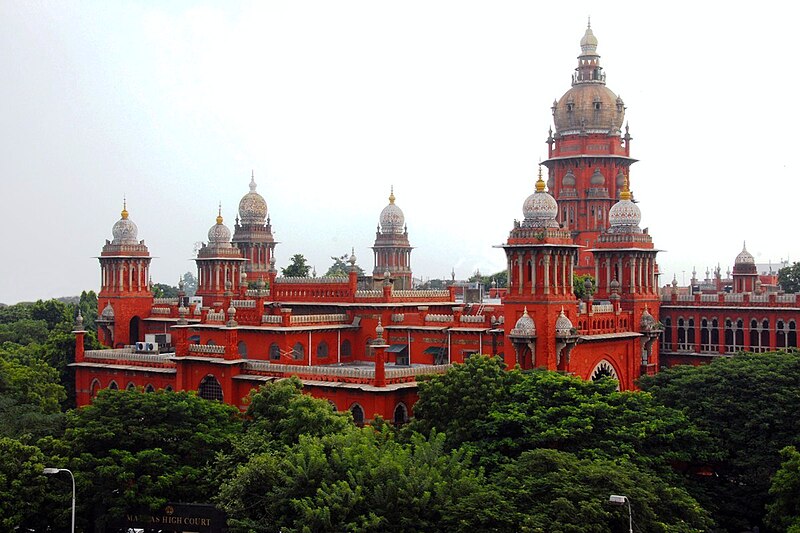
The Relevancy of Arbitration in Insolvency Proceedings: An Analysis
- - Alafiya, 5th Year Student
- Chanakya National Law University, Batch of 2022.
The Insolvency Regime in India had a watershed moment with the introduction of the Insolvency and Bankruptcy Code, 2016 (“the Code”). While the procedure under the code is rather sophisticated in its approach, aiming to resolve the initiation of insolvency proceedings within 180 days, in the wake of the COVID-19 pandemic and its negative implications on businesses, the sheer number of insolvency proceedings has grown in a drastic fashion. Simultaneously, the popularity of arbitration over conventional dispute settlement such as litigation has taken over as well, especially in the corporate sector.
With the increasing relevancy of the above-mentioned fields of law, the interaction between them must be explained with clarity. However, the novel nature of such a proposition is such that the existing literature has been unable to demystify the grey areas between arbitration and insolvency proceedings. While there are numerous cases wherein the parties or the liquidators of an insolvent company pursue claims in arbitration, and where the settlement of disputes is primarily driven by cash flow and solvency issues, there are barely any authoritative guidelines that elucidate upon the interaction between the insolvency and arbitration.
With this issue in mind, the co-authors attempt to analyze the arbitrability of insolvency claims and present a coherent explanation regarding the same, in view of the international perspective on the interplay of arbitration and insolvency proceedings as well as judicial pronouncements rendered by Courts in India in this regard.
The Arbitrability of Insolvency Claims: –
Insolvency claims generally are not arbitrable, given that in every case there are underlying public interest considerations which disallow this. A slightly newer development which relates to, when you can commence insolvency proceedings, where the parties have an arbitration clause in the contract between them, this was answered in the landmark case of Mobilox Innovations Private Limited v. Kirusa Software Private Limited[1]. Where it was concluded that if an Agreement has a pre-existing Arbitration clause, NCLT cannot be approached for adjudication. On the different side, it is also seen that once the moratorium period under IBC starts. it prevents the filing of any legal action including commencement of Arbitration. Subsequently, it can be said that unless a Notice under section 21 of the Arbitration Act has been given, there is no block on approaching the NCLT even if there an Arbitration clause inside the Agreement.
- [1] (2018) 1 SCC 353.
Other Judicial Pronouncements in this regard: –
- Indus Biotech v. Kotak-
In 2019 itself, the Hon’ble Supreme Court cleared the mist on several aspects of the interplay between the arbitrability of insolvency disputes through its ruling in the case of Indus Biotech Pvt. Limited (“Indus Biotech”) v. Kotak India Venture (Offshore) Fund & Ors. (“Kotak”). In this case, Kotak had filed an application under Section 7 of the Code in the Mumbai bench of the National Company Law Tribunal (“NCLT”) seeking the initiation of Corporate Insolvency Resolution Process (“CIRP”) against Indus Biotech, accusing the latter for their alleged default in redeeming the preference shares subscribed by Kotak under their share-subscription agreement. While the CIRP application was pending, Indus Biotech filed a miscellaneous application before the NCLT under Section 8 of the Arbitration and Conciliation Act, 1996, seeking the direction of their dispute to arbitration.
In this view, the NCLT rejected Kotak’s application on the ground that there was non-existence of ‘default’ and while allowing the application made by Indus Biotech. Therefore, the matter referred to arbitration. This decision was appealed by Kotak before the Hon’ble Supreme Court with the appellants alleging that the NCLT had overstepped its jurisdiction by allowing the arbitration of an in rem insolvency proceeding, especially in the absence of any specific power conferred upon it by the Code.
In the instant case, the Supreme Court relied upon the landmark ruling of Vidya Drolia and Others Vs. Durga Trading Corporation [1] to reason that third-party rights in favor of the creditors are created only when the CIRP application is admitted and not before. During the pre-admission stage, the NCLT is only required to establish the existence of default and it is after that the third-party rights are generated in the CIRP. The Court agreed with the reasoning behind the dismissal of Kotak’s application to the NCLT and thus, observed that the dispute between the parties could be settled by arbitration proceedings.
- Kishan v. Vijay Nirman Company:
In this ruling, the Hon’ble Supreme Court rendered the landmark ruling pertaining to the initiation of insolvency proceedings by virtue of an arbitral award. It was, however, observed that considering arbitral awards are valid records of operational debt, the same would have to be undisputed so as to initiate CIRP by the operational creditors.
In this case, the factual matrix did not conform to the principles set forth by the Apex Court since a challenge had been filed against the arbitral award in the Court of law and thus, initiation of CIRP while the matter is lis pendens would unnecessarily cause multiplicity of decisions.
- (2021) 2 SCC 1
- MANU/SC/0872/2018.
- [2018] EWHC 1343 (Comm).
- [2011] SGCA 21.
International Perspective: –
Generally, when an insolvency proceeding has been commenced in Singapore or Malaysia or Indonesia for that matter, all jurisdiction requires leave of court to be obtained before one can continue or commence any actions including arbitration proceedings. So, that obviously would have a direct effect on arbitration, either within the jurisdiction of the insolvency proceeding itself but the position is less clear on arbitrations that are seated outside the jurisdiction where the insolvency proceedings has been commenced. That being said, there are other practical considerations that parties should bear in mind while in arbitration, like take into account if the counterparty undergoes some form of restructuring arrangement or insolvency.
In the case of Nori Holdings Ltd v Bank Otkritie Financial Corp[1], the bench referred to Justice V.K Rajas’s decision in Larsen Oil & Gas Pte Ltd v Petroprod Ltd[2], where two parts of that judgement indicated that there is a presumption as a matter of construction that insolvency related claims do not fall within the arbitration agreement, notwithstanding that language might seem to extend to it. But the bench in England in Nori Holding case held that to the extent that there is this presumption, it doesn’t form part of the English law and the subject matter of the case which concerned an avoidance claim that arose under Russian law, was allowed to go to arbitration.
Other things to also consider are, assignment of rights whether right or burden to arbitrate can be assigned, it has been made clear by the Singapore Court that an arbitration agreement is assigned together with the entire contract at initial. So, there are different issues that arises for example as to whether there is sale on purchase of debts in insolvency case and whether the arbitration or duty to arbitrate then flows with that. But in practical, it has been seen that it all depends upon when the arbitration was commenced, prior to liquidation or prior to the insolvency proceeding.
If the bankruptcy proceedings take place before or during the arbitration, the review is similar. Local laws governing bankruptcy proceedings may require the suspension of other dispute resolution proceedings so that the bankruptcy administrator can consolidate the debts and assets of the insolvent business. At the same time, the court that oversees the arbitration proceedings not only decides the law of the land governing whether to recognize insolvency proceedings in arbitration, but also its legal effect. Thus, interactions and conflicts become apparent: the existence of bankruptcy proceedings can undermine the arbitration agreement itself (for example, by nullifying it or reducing its scope) and different courts, guided by a different substantive law, may deal with the issue differently.
A prime example of this tension is reflected in the story between Elektrim SA, a Polish company, and Vivendi Universal SA, a French company. The companies had two investment agreements between them and a dispute arose over ownership of shares in Poland’s largest telecommunications network. Disputes arising from the two agreements have been submitted to arbitration under their respective terms. An agreement is provided to arbitration in London under the rules of the London Court of International Arbitration (LCIA). The other is provided for arbitration in Switzerland according to the rules of the International Chamber of Commerce (ICC).
Before either dispute could be fully resolved by arbitration, in 2007 Elektrim filed for bankruptcy in Poland. Under Polish bankruptcy law, arbitration agreements are considered void and arbitration must be terminated. In addition, the Warsaw court overseeing the bankruptcy proceedings revoked Elektrim’s right to self-administration. Elektrim therefore argued before the two arbitral tribunals that they had no jurisdiction and that the arbitration proceedings should be terminated. However, the arbitral tribunal retains the discretion to determine its own jurisdiction under the comptenz-competenz principle.
The LCIA arbitral panel determined that English law governed whether the arbitration should carry on and decided that it would resolve the dispute, despite the guidance of Polish bankruptcy law. Meanwhile, the ICC tribunal determined that Polish law governed, it lacked jurisdiction, and the arbitration would be suspended. These conflicting arbitral decisions were reviewed by the U.K. and Swiss courts, respectively, and were upheld as valid.[3] These dramatically different results, endorsed by sophisticated local courts, demonstrate the complex competing legal and policy implications of parallel insolvency and arbitration proceedings.
Example like this highlight the complex ways competing legal and policy considerations may lead to different results, depending on the applicable law and the objectives of the decision maker (Whether you are a trustee trying to resolve all claims against the debtor, or an arbitral tribunal trying to resolve a particular dispute under the agreed arbitration clause).
In the event that a party initiates bankruptcy proceedings after the conclusion of the arbitration (but before the final court decision, reflected in the award, is enforced or paid), various considerations appear. Although statistics generally show that parties owed to an arbitral award often voluntarily comply with an arbitral award and pay their debts, the voluntary incentive to comply for an insolvent party math will be weaker. When an insolvent party is liquidated, ongoing business relationships or reputation in the market are no longer a primary concern.
It may also be found that if the bankruptcy proceedings suspend the initiation or continuation of the arbitration proceedings, there may be a reason to seek an appeal in the bankruptcy court. The bankruptcy court mainly wants to regulate claims and protect assets. For example, a bankruptcy court may only allow a proceeding against a debtor’s insurance company without relying on the debtor’s assets. The bankruptcy court may allow the commencement or continuation of arbitration, but only for determining the amount of the claim so that the claim can be asserted in the insolvency proceeding.[4] This shows the law of liquidation catching up with the world of arbitration.
Elektrim SA v Vivendi Universal SA & Ors, England and Wales High Court (Commercial Court) (Mar. 20, 2007); Vivendi SA et al v. Deutsche Telekom AG, 4A_428/2008, Swiss First Civil Law Court (Mar. 31, 2009).
Craig R. Tractenberg, Sarah B. Biser & Oksana G. Wright, Insolvency and Arbitration Proceedings – Are They So Happy Together? Fox Rothschild LLP, available at https://globaldisputeresolutioninsights.foxrothschild.com/2021/04/insolvency-and-arbitration-proceedings-are-they-so-happy-together/.


Concluding Notes: –
National insolvency laws are often designed to make public policies unique and often mandated for the benefit of debtors and creditors in that jurisdiction. In contrast, international arbitration aims to provide parties with, among other things, a territorially neutral forum for the resolution of their commercial disputes and the ability to exercise their right of self-determination (including the possibility of choice of procedure and applicable law). In the post-pandemic world, businesses are grappling with managing business relationships, changing circumstances, and the long-term viability of individuals. These situations make the interaction and shares of these two different areas of law more sensitive. Businesses facing these circumstances need thorough and sophisticated legal advice from insolvency advisors and international dispute resolution experts to successfully navigate the opportunities and mines are found among these competing priorities.
